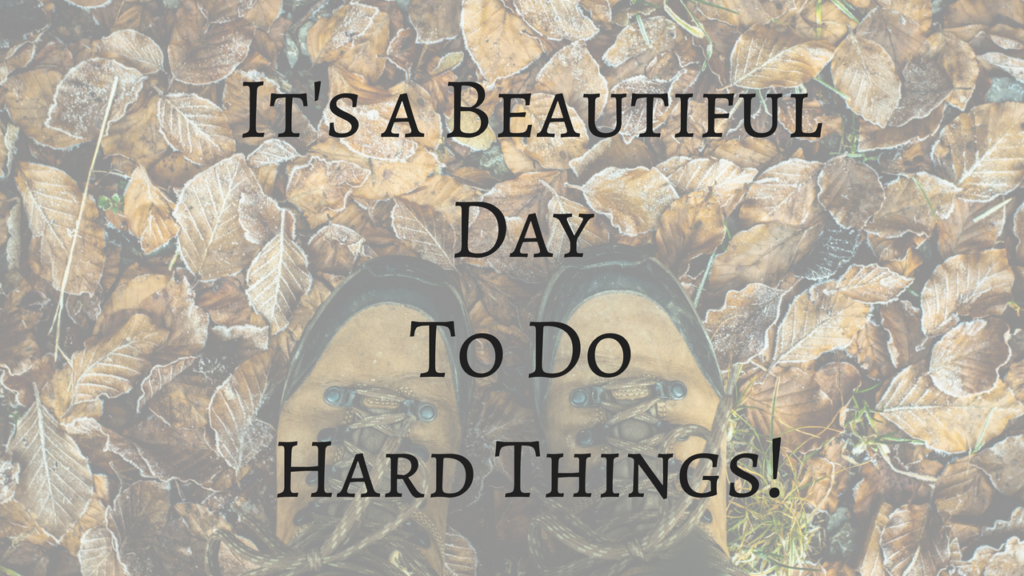
Welcome back to another episode of Your Anxiety Toolkit. Today I talk about how "you cannot skip the line." This podcast episode is about an event that happened to me a few weeks ago that blew my mind. It pretty much punched me in the gut. Yes, you read that right. It was a hard, hard day. In this episode, I speak about attending a meditation class and being given a very hard lesson. The lesson was, “You cannot skip the line”. Let me tell you more.
In this class, I asked what I thought was a simple question. Without expecting it, the teacher taught me a very important lesson that I think will impact me for quite some time.
She responded with “There is a lesson for everyone here. It is important that you do not skip the line here. You must do the work. If you haven’t wrestled with this practice over and over, do not come to me for the answers.”
I was embarrassed. I felt ashamed. I felt called out. I felt anger.
But, after some time and contemplation, I asked myself, “Is there a pattern here?” And guess what?! There was. The lesson was that you cannot skip the line to the “know” the answer. When you “skip the line”, you prevent yourself from learning the real process. Knowing will only help for the first time or two. After that, it takes practice and patience.
In this episode, I will walk you through a 4 step process to help you lean in and do the work instead of just asking questions.
These steps include being aware that you cannot skip the line and then catching yourself when you are doing such behavior. The steps also involve being honest with yourself when you are engaging in such behavior instead of staying in the unknown. The goal is to be as patient as you can along the way. And lastly, the most important step involves Compassion, Compassion, Compassion.
I hope this helps you in some way to notice when you are “skipping the line."
Sign up for our FREE weekly newsletter. Incredible tools, tips, and mental health resources! Click here for more information.
Please check out this excellent blog post by the amazing Shala Nicely, LPC on the problem with saying "I'm so OCD."
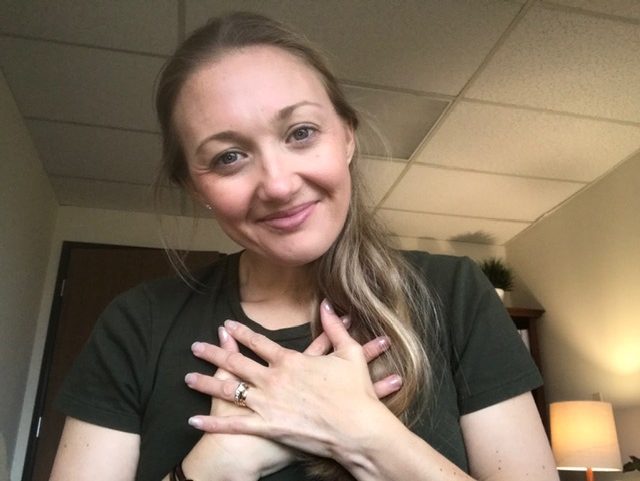
Welcome to Your Anxiety Toolkit Podcast. In this week's podcast, I want to talk with you about how I failed 100 times this year. Wait, What?!?! Yes, you heard right! In 2019, I made the goal to fail on purpose 100 times. The goal was to set my goals so high that I was forced to fail. And guess what? I failed 100 times. I possibly failed 1000 times. I failed so many times I lost count.
In this podcast, my hope is to share with you my personal experiment in changing the way that I feel and respond to the thought of failure.
Here are examples of how I failed 100 times:
• I asked a lot of people to come on the podcast. A lot of people said no. I knew they would, but I figured it was worth a try. But, do you know what I learned? I learned that a lot of people I didn’t think would say yes did.
• I took a course that was so hard and out of my line of skills and really struggled to complete it.
• I started playing the ukulele even though I was so afraid of being terrible at it (which I am).
• I pitched a book to a publishing company (more on this later).
• I said yes to being Room Mum for both of my kids (knowing I would not be the best at it).
• I aimed to increase registration for ERP School and we did it. We reached the highest registration yet.
But here is the thing. I also failed 100 times at things I never set out to fail at. I had to accept in many ways that I cannot push my body to do things that I simply could not do. This was the hardest part about failing. I had to stare my fear of failing at the easy stuff over and over again.
Here are examples of how I not only failed 100 times, but gave myself permission to fail, even though it hurt so much.
◆ Remember that course I told you about? I got so sick, I didn’t finish it. I had to drop out and this made me face imperfection and failure head-on.
◆ I was a less than perfect therapist! I missed sessions with clients, and I double booked clients during times when I was so overwhelmed.
◆ I gave myself permission to share the struggles I have had with friends. I was so embarrassed to do this, but I am so glad I did. I learned that when you share your struggles, you actually feel more connected with the people around you.
But finally, the most important example of how I failed 100 times is the decision I have made to take a month off of the podcast. After much consideration, I have decided to listen to my body and take the month of December to rest, rejuvenate and repair. I fought this decision for a long time, but I know it is what I need.
With that being said, I want to thank you for being so loyal and kind to me. I adore your support. I wish you a very Happy 2019 Holiday! I will be back in January, ready to go. Ready to fail!
FREE anxiety video training! Learn how to become more intentional with the words you use to describe yourself, your experiences and your future.
Cbtschool.com/thinkwisely
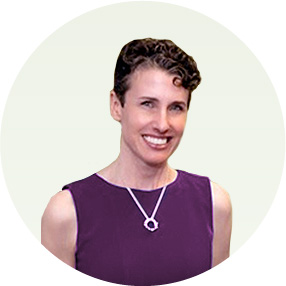
Are you struggling with gratitude this holiday season? If so, this episode is exactly what you might need to hear. In today’s episode of Your Anxiety Toolkit, I spoke with Shala Nicely about struggling with gratitude. Together, we address why some people might be struggling with gratitude or being grateful, especially if they are also struggling with mental health.
In this episode, Shala Nicely addresses the personal struggles she has had in the past with gratitude and some incredible tools to manage this.
Shala so beautifully articulates three common reasons why people struggle with gratitude. The first two struggles fall under the category, that Shala calls, gratitude by comparison. This often occurs when you are supposed to be doing “better” than someone else, but you do not feel very grateful. Shala explains that gratitude by comparison can fall into two separate categories: relief-induced gratitude and guilt-induced gratitude.
The third common struggle is forced gratitude. An example of this might be, “I should be grateful and I’m not. What’s wrong with me?” or, “You have everything going for you. Why can’t you just be thankful for what you have instead of focusing on the negative?”
I love that Shala addresses how forced gratitude quickly becomes what we know clinically as toxic positivity.
Some great tips if you are struggling with gratitude might be:
• Practicing wonder, curiosity or beginners mind
• Non-Judgment
• Give yourself permission to not practice gratitude over the holidays
BFRB SCHOOL is here!
A COMPLETE ONLINE COURSE FOR BODY-FOCUSED REPETITIVE BEHAVIORS (BFRB’s)
Trichotillomania (Hair Pulling)
Compulsive Skin Picking
Compulsive Nail Biting
https://www.cbtschool.com/bfrb-school-online-course-trichotillomania-skin-picking
Free Video Training for Anxiety! Cbtschool.com/thinkwisely
Check out these other fantastic episodes featuring Shala Nicely!
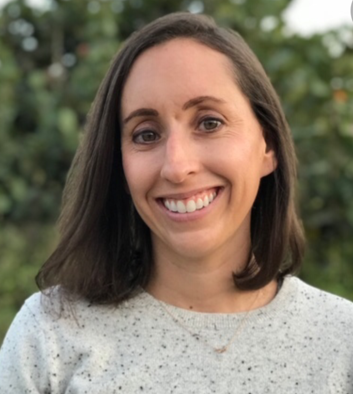
Welcome back to another episode of Your Anxiety Toolkit Podcast. Today we have a very special guest, Giulia Suro, Ph.D., who is going to talk to us about Acceptance and Commitment Therapy and how we can use ACT tools in our everyday life. Giulia is a psychologist in private practice in the Washington, D.C. area. She is passionate about ACT and helping her clients develop a new way of looking at their thoughts and feelings. Giulia does such a beautiful job of bringing these ACT tools to us in a compassionate and articulate manner. Thank you, Giulia!
In this episode, we address how Acceptance and Commitment Therapy centers on the concept of mindfulness. We learn that ACT is really quite unique because anyone can use the tools regardless of the struggles they are facing. Giulia discusses how fighting or resisting those struggles can impact us in the long term and we learn that ACT involves moving towards our values. We also address the core ACT tools that Giulia uses in her daily life and in her practice, such as, the Bullseye worksheet (link below).
Giulia Suro beautifully addresses the following questions with grace, care, and expertise:
What is ACT?
Why do we use ACT In everyday life?
How can it complement our recovery/wellness plan?
What tools does she use with her clients?
What tools does she personally use?
What struggles does she see some of her clients go through when practicing ACT?
Giulia's Website: www.giuliasuro.com
Instagram @drgiuliasuro
Workbook: Learning To Thrive
Bullseye Worksheet
file:///Users/kimberleyjquinlan/Downloads/Bulls%20Eye%20Values%20Exercise.pdf
BFRB SCHOOL is here!
A COMPLETE ONLINE COURSE FOR BODY-FOCUSED REPETITIVE BEHAVIORS (BFRB's)
Trichotillomania (Hair Pulling)
Compulsive Skin Picking
Compulsive Nail Biting
https://www.cbtschool.com/bfrb-school-online-course-trichotillomania-skin-picking

Welcome to another episode of Your Anxiety Toolkit Podcast. This topic has been a long time coming, and highly requested. This week’s podcast is all about anxiety and sex. In this podcast, we talk about how anxiety and sex can become two peas in a pod and how anxiety can present itself in many different ways. While I am not a sex therapist, I do have a lot of experience talking with my clients about anxiety and sex.
The truth is, there are many ways anxiety shows up during sex, or sex shows up in our anxiety. This is true for many people and this can become very confusing. People often report anxiety impacting sex in many ways. This might include loss of arousal, loss of libido or interest in sex, intrusive thoughts during sexual intercourse, hyper-awareness of sexual-related sensations and many more.
In this week’s episode, we address the following topics
• Social Anxiety: In social anxiety, people are afraid of being judged by their sexual partner and will often avoid sexual interactions in fear of being judged. For people struggling with social anxiety and sex, they must accept the risk of being judged and work to find a partner who respects them and their fears. Finding safety in a partner can help immensely.
• Performance anxiety: This involves the fear of not being able to perform well (or perfectly) in sexual interactions. This is very common and often involves setting realistic expectations for ourselves.
• OCD: There are many ways that OCD can create anxiety around sexual intimacy. This is most common for those who have sexual orientation obsessions, relationship obsessions, or pedophilia obsessions
• Panic Disorder: Symptoms of panic can often come on during all stages of intimacy, not just anticipatory anxiety
• Trauma: Trauma is a very important component to address. We encourage people who have trauma in this area to seek professional mental health care and work through these issues with a safe and caring clinician.
Find a Sex Therapist:
https://www.aasect.org/aasect-requirements-sex-therapist-certification

Hello there everyone and welcome to another episode of Your Anxiety Toolkit Podcast. This week's episode is all about how to prevent Social Anxiety. I know that the title, “How to Prevent Social Anxiety” might sound a little fishy, but in this episode, we are going to look at some groundbreaking new research on social anxiety that might help us to understand the relationship between shyness and social phobia and how to prevent social anxiety in adolescence. In this incredible new finding, researchers found that there is a direct relationship between shyness and social anxiety in pre-adolescents. For the purpose of this episode, we will define shyness as the feeling of apprehension, lack of comfort, or awkwardness. These symptoms will increase, especially when a person is around other people and in new or unfamiliar situations.
This research found that negative social self-cognitions mediate the shyness - social anxiety link, whereas, social interpretation bias does not. Social interpretation bias, by definition, is the tendency to interpret ambiguous situations in a positive or negative fashion. What does this mean in regard to how to prevent social anxiety, you may ask? Basically, if we can teach pre-teens how to interpret themselves in a more positive way, we might be able to reduce the impact of social anxiety in adulthood. This research showed that prevention should address the negative self-cognition of shy (pre-)adolescents.
So examples such as the below statements might be corrected into more logical and objective statements.
◆“I am a fool”
◆“There is something wrong with me”
◆“I look like an idiot”
More Objective Statements
◆I am not for everyone
◆Just because there was silence, doesn’t mean I am incapable of being in social settings
◆It's ok that they didn’t laugh at my jokes. One person's “funny” isn’t everyone's version of funny.
Link to research.
https://www.sciencedirect.com/science/article/pii/S0193397318302818
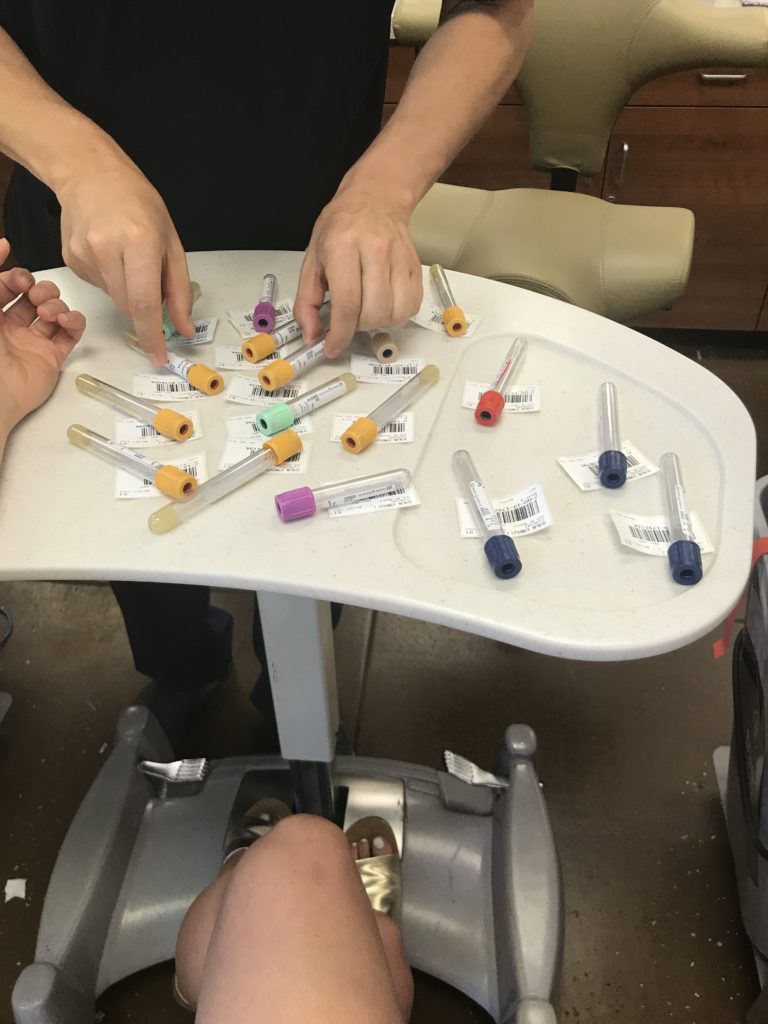
Welcome back to another episode of Your Anxiety Toolkit Podcast! Do you know what POTS is? I didn’t know either until earlier this year, and my life has not been the same ever since. Let me tell you one thing, we are NOT talking about something that holds plants and something you cook spaghetti in. This episode is all about Postural Orthostatic Tachycardia Syndrome, also called POTS for short.
Why? Because October is Dysautonomia Awareness month and because I have recently been diagnosed with POTS. This episode is aimed at educating you about POTS and also addresses my own experience of being diagnosed with a chronic medical condition. It has been an emotional ride, and my hope is to share with you a few tools that have helped me to manage this news and the ongoing treatment that I will need to adhere to. Thank you so much for supporting me this year. Your messages and kindness has been overwhelmingly positive and I am so grateful for you all.
So, what is POTS? Postural Orthostatic Tachycardia Syndrome (POTS) is a condition that affects circulation (blood flow). Basically, for most people, our autonomic nervous system works to control and regulate our vital bodily functions and our sympathetic nervous system, which activates the fight or flight response.
However, if you have POTS you have what is called orthostatic intolerance. What this means is that when standing up from a reclining position, blood pools in the legs causing lightheadedness, fainting, and an uncomfortable, rapid increase in heartbeat. People with POTS have trouble regulating the blood vessel squeeze and heart rate response causing blood pressure to be unsteady and unstable.
Each case of POTS is different. Patients may see symptoms come and go over a period of years. In my case, I have probably had it my whole adult life, but it has worsened enough to need medical attention. In most cases, with proper adjustments in diet, medications and physical activity, a person with POTS will see an improvement in quality of life.
People with POTS usually suffer from two or more of the many symptoms listed below.
• High/low blood pressure
• High/low heart rate; racing heart rate
• Chest pain
• Dizziness/lightheadedness especially in standing up, prolonged standing in one position, or long walks
• Fainting or near-fainting
• Exhaustion/fatigue
• Abdominal pain and bloating, nausea
• Temperature deregulation (hot or cold)
• Nervous, jittery feeling
• Forgetfulness and trouble focusing (brain fog)
• Blurred vision
• Headaches and body pain/aches (may feel flu-like); neck pain
• Insomnia and frequent awakenings from sleep, chest pain and racing heart rate during sleep, excessive sweating
• Shakiness/tremors especially with adrenaline surges
• Discoloration of feet and hands
• Exercise intolerance
• Excessive or lack of sweating
• Diarrhea and/or constipation
Please go to the below website for more information on POTS
https://my.clevelandclinic.org/health/diseases/16560-postural-orthostatic-tachycardia-syndrome-pots
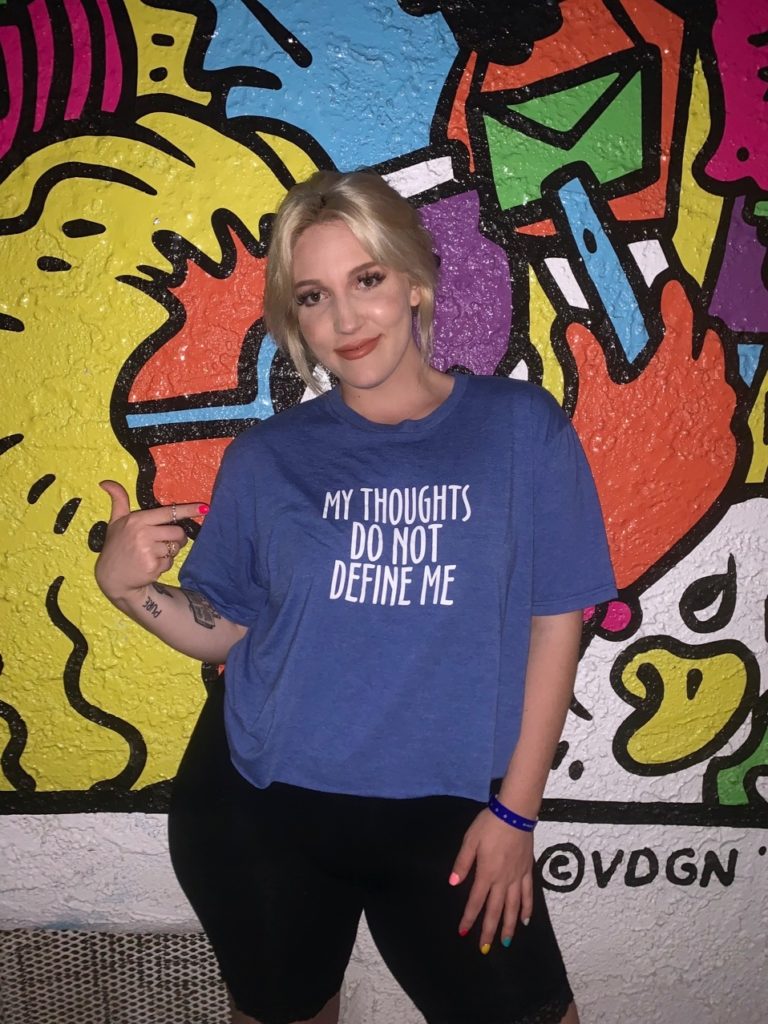
Welcome to Your Anxiety Toolkit Podcast! Today I am so thrilled to introduce to you this week's guest, Alegra Kastens, MA. Alegra is not just a guest on the podcast. Alegra is also a very important part of CBT School and has helped me so much since CBT School launched in 2018. Alegra Kastens has been a huge part of the creation of this podcast, uploading it each week, creating a lot of the technological support, creating images and supporting me when I am struggling with all the projects. Alegra is now moving forward with her career and is working as a therapist who specializes in OCD.
In today's discussion, Alegra told us about the first moment she had her first intrusive thought and how these impacted her life. She also shared with us the process of her finally deciding to ask for help, even though she was petrified and so ashamed. Alegra shared what she found helpful and not helpful from her therapist and how she was supported and encouraged to seek specialized OCD treatment from her therapist who did not specialize in OCD.
What I loved most about this episode is that Alegra Kastens so candidly talks about her experience of shame, guilt, and stigma related to having OCD. Alegra’s main sub-type of OCD was pedophilia obsessions, which caused her to be stuck in self-doubt, self-criticism and complete panic for a very long time. Alegra Kastens shared what it was like to experience sexual obsessions such as pedophilia obsessions and what it was like to undergo Exposure and Response prevention for her OCD symptoms. Alegra shared some of the ERP exposures looked like and the importance of being given psycho-education about ERP before beginning. I loved how much education and inspiration Alegra Kastens brought to this conversation.
To learn more about her story, click HERE to read an article she wrote for IntrusiveThoughts.org.
For more information on Alegra Kastens, visit:
Instagram: @ObsessivelyEverAfter
Website: www.alegrakastens.com
Psychology Today blog: https://www.psychologytoday.com/us/blog/all-things-anxiety
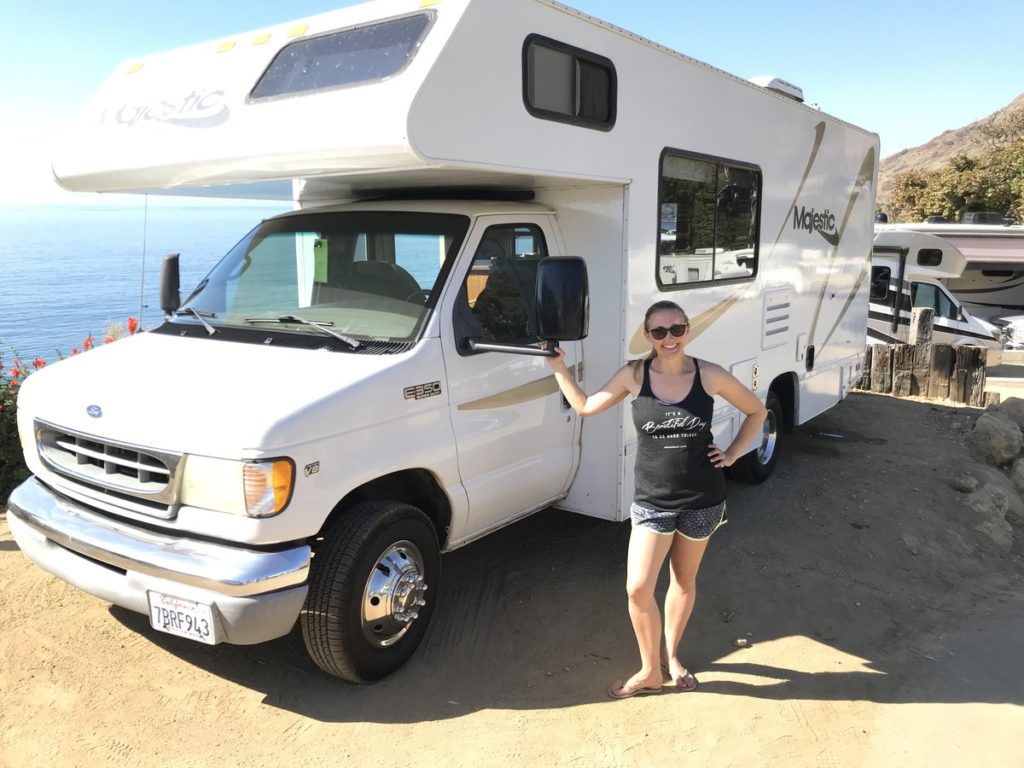
Welcome to another episode of Your Anxiety Toolkit podcast.
This week’s podcast was recorded from an RV on Pacific Coast Highway. It was the last day of my birthday celebration and I rented and drove a 35-foot RV to the beach so I could celebrate my new year with my dear friends and dear family. As I sat back, I reflected on what my biggest goal was for my 38th year.
My goal for the upcoming year is NO MORE RUSHING. That’s right! I have made a deal with myself. NO MORE RUSHING. No more rushing my kids. No more rushing my family. No more rushing my joy. No more rushing my anxiety.
My hope for my 38th year is to slow down and really drop down into the present moment. My hope is to be present and absorb the joy that exists all around me. Since I made the goal of no more rushing, I have found that I am more aware of all of the beauty in my life and I am more present to really see the amazing people and places around me.
On this birthday weekend, we sat on the beach and just absorbed the love that we all felt for each other. We looked up to the horizon instead of focusing on the road and the computer screens and the phones. We connected and I didn’t rush a thing.
My hope for this podcast is to inspire you to take on the goal of NO MORE RUSHING and just see how much beauty that comes from this.
OCD Awareness Week, from October 13-19, is almost here! This year’s awareness-raising campaign is focused on sharing videos of you and your friends facing your fears. The goal is to educate the public about the realities of living with OCD and the challenge of having to face your fears on the path to recovery. To participate, the IOCDF is asking everyone to create a video or photo of themselves doing something that makes them anxious and then to post on any and all social media platforms with the hashtags #FaceYourFear and #OCDWeek.
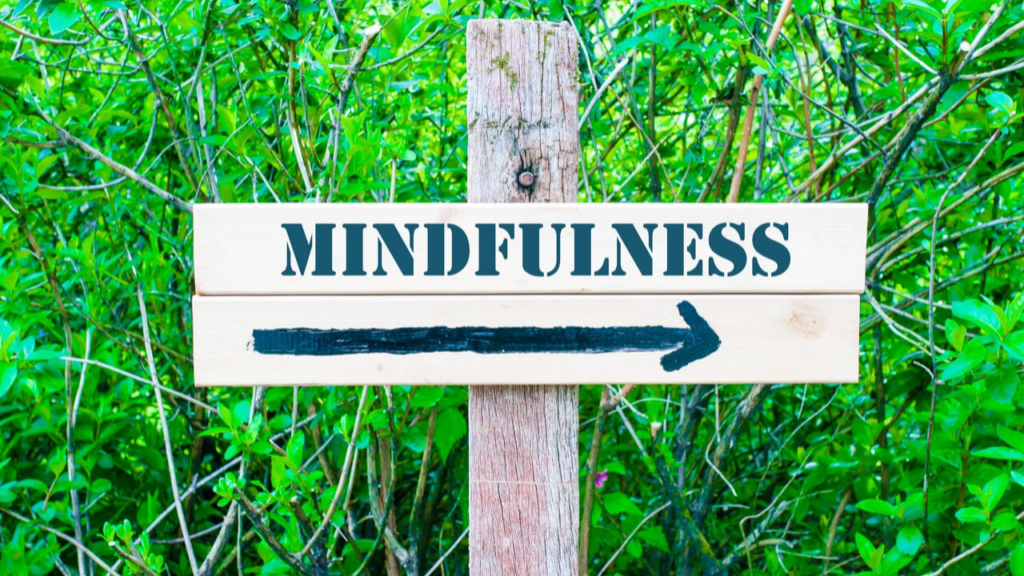
Do you ever wonder how to live in the present? Is this a question you ask yourself often? Or, have you already got a good mindfulness practice, but you wonder how to live in the present when it comes to intrusive thoughts, intrusive images and strong emotions and urges? If this sounds true for you, you are not alone. I, too, am constantly on a mission to figure out how to live in the present in a more authentic and mindful way.
In this week’s episode of Your Anxiety Toolkit, we take a CBT SCHOOL listener’s question. A wonderful member of our CBT School community reached out and asked a very important question and instead of replying personally, I thought it would benefit everyone by addressing this question with you all. Considering that I am always on a mission to solve the question of how to live in the present, I thought we could all take a look at this issue together!
The listener’s question is:
"I work hard to implement mindfulness in my life, and in many ways it makes sense and helps me. But sometimes I feel like I escape when I try to live in the present moment. It's like my OCD tells me ‘wow, you have learned a new tool…great, but do you know what – if something is contaminated or dangerous it doesn't matter if you try to live in the present moment. You are just kidding yourself! You have to take care of the problems from yesterday and you have to make sure you have a future to live in. Don't be fooled into that mindfulness stuff…’ My mind gets twisted. Do you have any thoughts that can bring some clarity?”
Before we go, I want to remind you of two wonderful awareness weeks! BFRB Awareness week is happening NOW and ends on October 7. You can participate by attending local events, joining the conversation online, and more. Click HERE for more information.
OCD Awareness Week, from October 13-19, is almost here! This year’s awareness-raising campaign is focused on sharing videos of you and your friends facing your fears. The goal is to educate the public about the realities of living with OCD and the challenge of having to face your fears on the path to recovery. To participate, the IOCDF is asking everyone to create a video or photo of themselves doing something that makes them anxious and then to post on any and all social media platforms with the hashtags #FaceYourFear and #OCDWeek.
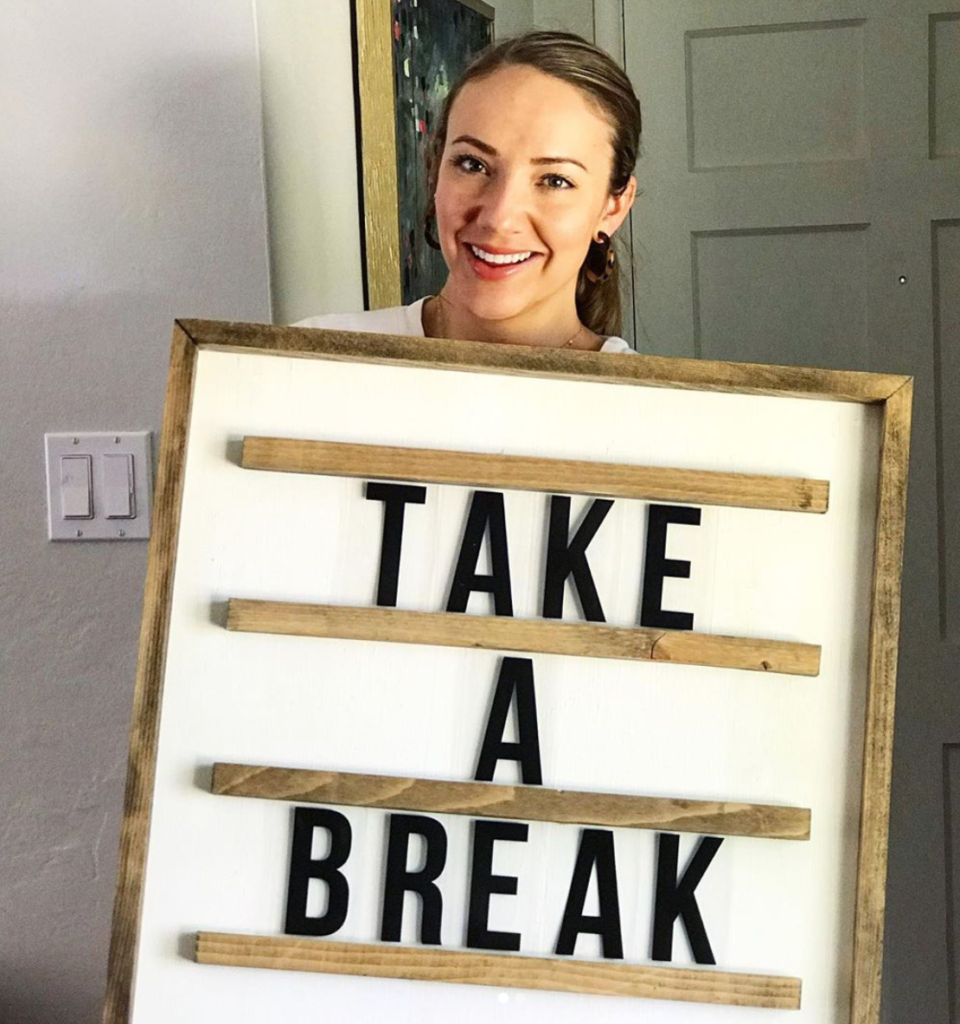
In today’s episode, we are talking all about how to manage Perfectionism. I am so honored to have Monica Packer on the podcast as this week’s guest, as she has such an inspirational story about how she was impacted by perfectionism and what steps she is taking each day to take her life back from Perfectionism. This episode is jam packed with tools and strategies to demonstrate how to manage perfectionism in your life.
In this episode, Monica answered the below questions and delivered some incredible insight into how to manage perfectionism in areas I myself had never considered.
- What is perfectionism and how has it impacted your life?
- What did perfectionism look like for you personally?
- We often praise people who are “perfect." What are your thoughts on this?
- At what point in your life did you realize you were a perfectionist?
- What did perfectionism look like for you personally?
- How long had you experienced perfectionism?
- What was your experience with overcoming perfectionism?
- What advice do you have to those who experience perfectionism?
- Were there any roadblocks/setbacks etc to this journey for you?
If you are early in the process of learning about perfectionism or you are well aware of your perfectionistic characteristics, I am sure you will benefit from this incredible interview.
For more information on Monica, visit:
Instagram: @aboutprogress
Facebook: @aboutprogress
Website: aboutprogress.com
Before we go, I want to remind you that ERP School for Obsessive Compulsive Disorder is available for purchase until October 1, 2019! ERP School is a complete online course that teaches how to apply Exposure & Response Prevention (ERP) to your Obsessions and Compulsions. Click HERE for more information and to purchase.

This week’s episode of Your Anxiety Toolkit is called “Watch your mouth” and I mean that in the kindest possible way. I know we usually hear the phrase “Watch your mouth” as a phrase of discipline and can often be shocked or intimidated by such a statement. In this episode, we talk all about the words we use in daily life.
We address how we often say things that simply are not true, or are quite unkind. Because we often unconsciously believe what we tell ourselves, we have be careful not to address ourselves in ways that are unhelpful. Take a quick look at the below examples:
• “I NEVER do anything right”
• “I am so BAD for having this thought”
• “You ALWAYS make me anxious”
Here are a few examples of ways in which we say things that are untrue and unhelpful. When we do this, we not only feed ourselves stories that are unhelpful but we also create an environment where negativity exists. I can make the assumption that these negative statements are not helpful for you. In this episode, we hope to inspire you to “watch your mouth” carefully and take note when you are speaking in a way that might exacerbate your anxiety.
ALSO, We also have fabulous news! Exposure & Response Prevention School is BACK!
ERP School was carefully created to cover the most important components of Exposure & Response Prevention. The ERP School includes the following modules:
1. The Science behind Exposure & Response Prevention (ERP)
2. Identifying YOUR Obsessions and Compulsions
3. Different Approaches to Practicing Exposure & Response Prevention (ERP)
1. Gradual Exposure & Response Prevention
2. Scripting and Flooding.
3. Opposite Action Skills
4. Interoceptive ERP
5. Let's Get Creative with ERP
4. Managing Uncertainty and Discomfort with Mindfulness
5. Troubleshooting Common Issues and Concerns
6. BONUS Material: OCD Sub-types and Themes
We like to keep the courses super affordable so that everyone gets a chance to learn the tools needed to manage anxiety, obsessions, and compulsions. Exposure & Response Prevention (ERP) School is $197.
Exposure & Response Prevention (ERP) School includes 18 videos, supplemental PDF's and handouts to help you apply the content to your obsessions and compulsions, as well as a BONUS 7 videos on applying ERP to the common OCD Sub-types.
In total, the course is almost 5 hours of the same ERP information and skills I teach my face-to-face clients.
CBT School is committed to supporting you throughout this process. If you have any questions, Kimberley meets bi-monthly on Facebook and Instagram for her LIVE MAGIC MONDAY Q&A hour (every second and fourth Monday at 12 pm PST) where she answers questions and troubleshoots any concerns you may have.
Once you have purchased the course, you will have unlimited access to the videos.
Exposure & Response Prevention (ERP) School is available for purchase just a few times per year. The cart for ERP School will open again September 20th, 2019 so get excited!
For more information on the course and to purchase, click HERE.
FREE TRAINING:
10 Things You Absolutely Need To Know About OCD
Available September 16-20th, 2019
If you have OCD, or you know someone who does, please join us each evening at 6 pm PDT to learn about the 10 things you need to know about OCD.
🌸
Things to note:
It's free!
Its offered each evening this week.
The webinar is pre-recorded and will be sent directly to your inbox.
It's FREE!
You can watch it in your PJ's
If you miss the training, a replay will be sent to your inbox the following day.
Did I mention that it is free?
I LOVE YOU ALL AND HOPE YOU ENJOY IT! https://www.cbtschool.com/10things
COURSE:
ERP School was carefully created to cover the most important components of Exposure & Response Prevention. The ERP School includes the following modules:
- The Science behind Exposure & Response Prevention (ERP)
- Identifying YOUR Obsessions and Compulsions
- Different Approaches to Practicing Exposure & Response Prevention (ERP)
- Gradual Exposure & Response Prevention
- Scripting and Flooding.
- Opposite Action Skills
- Interoceptive ERP
- Let's Get Creative with ERP
- Managing Uncertainty and Discomfort with Mindfulness
- Troubleshooting Common Issues and Concerns
- BONUS Material: OCD Sub-types and Themes
We like to keep the courses super affordable so that everyone gets a chance to learn the tools needed to manage anxiety, obsessions, and compulsions.
Exposure & Response Prevention (ERP) School is usually $197
Exposure & Response Prevention (ERP) School includes 18 video's, supplemental PDF's and Handouts to help you apply the content to your obsessions and compulsions and a BONUS 7 videos on applying ERP to the common OCD Sub-types.
In total, the course is almost 5 hours of the same ERP information and skills I teach my face-to-face clients.
CBT School is committed to supporting you throughout this process. If you have any questions, Kimberley meets bi-monthly on Facebook and Instagram for her LIVE MAGIC MONDAY Q&A hour (every second and fourth Monday at 12 pm PDT) where she answers questions and troubleshoots any concerns you may have.
Once you have purchased the course, you will have unlimited access to the videos.
Exposure & Response Prevention (OCD) School is available for purchase just a few times per year. The cart for ERP School will open again September 20th, 2019 so get excited!
LINK TO COURSE:
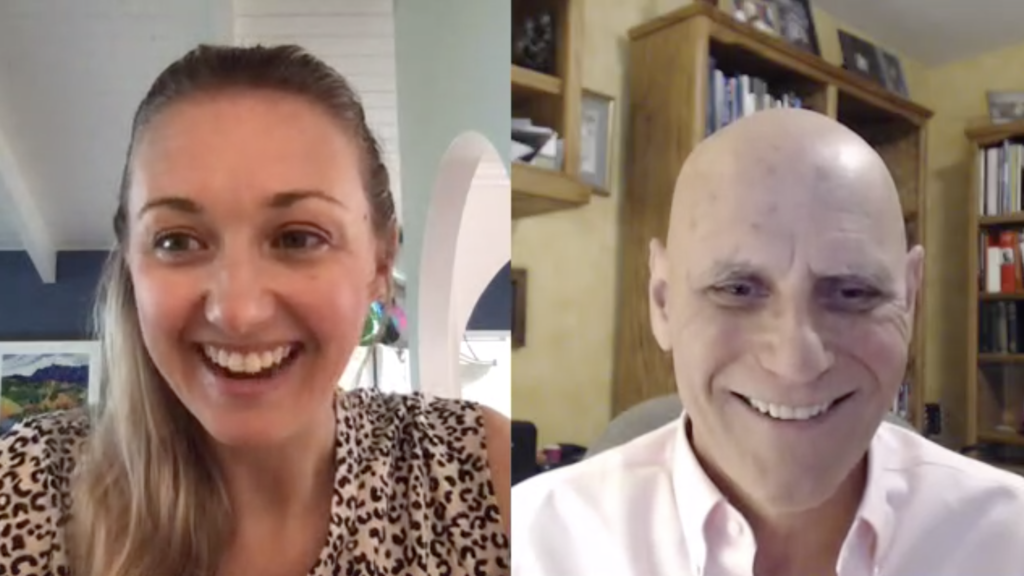
I am honored to have Steven C. Hayes, author of A Liberated Mind: How to Pivot Towards What Matters, back on the Your Anxiety Toolkit Podcast. He was on Ep. 83 and is joining us again! There is nothing that makes me happier than to chat with Steven Hayes about the unbelievable work he is doing and I cannot tell you how much I adored his most recent book.
In this week's podcast episode, Steven Hayes addressed how we can reach a liberated mind by improving psychological flexibility and moving away from psychological rigidity. Not only does Hayes address these important topics using a combination of science and reason, but he also discussed how we can access a liberated mind by practicing compassion and kindness, and by seeking out our own set of values. During this conversation, we touched on some really difficult topics including suicidal ideation, immigration, global warming and other issues that impact the state of the world. Steven Hayes does such a beautiful job teaching us how we can reach be more open to our suffering and be open and flexible with other people’s suffering.
Steven Hayes also addresses how we overuse problem-solving with our emotions. He talks about how we can create our own “hero’s journey” by choosing a path that feels liberating and freeing, instead of one that is powerless and rigid.
For more information on Steven Hayes, click below:
Website: https://stevenchayes.com/
TedX: https://www.youtube.com/watch?v=o79_gmO5ppg
To purchase his most recent book: https://www.amazon.com/Liberated-Mind-Pivot-Toward-Matters-ebook/dp/B07LDSPRYM
A book freebie:https://stevenchayes.com/a-liberated-mind/
Steven Universe video - "Here Comes a Thought": https://www.youtube.com/watch?v=dHg50mdODFM

Welcome back to another episode of Your Anxiety Toolkit. Today we are talking all about Accepting our Common Humanity. You may remember that Kristin Neff was on the podcast (Ep. 87) and she spoke about how Common Humanity is a core component of Mindful Self-Compassion. In that interview, Kristin Neff spoke about how we must notice that we are all in this together. Her description of Common Humanity is that we are never alone because all humans suffer and all humans feel emotions similar to what you are feeling, although it might not have the same content and be experienced from the same source of stress. Kristen Neff also addressed how we should not compare our suffering to that of another. When we do that, we minimize our own suffering and we reject the common humanity that we all experience.
In this episode, my goal was to share with you some of the struggles I have had in accepting my own human-ness. As I have battled multiple medical issues this year, I have had to face my common humanity over and over again. I have had to stare my human-ness in the face, which has been both painful and freeing. I have had to reflect many times on how I am treating myself and how to create a more self-compassionate life that involves me setting realistic expectations for myself, treating myself with love and care when I am not feeling well and being honest with myself about what I can and cannot achieve or do.
This journey of common humanity has been such a huge one for me and one that I hope brings you some awareness or hope. I often hear listeners and members of the CBT School community talk about how hard they are on themselves and how they hold themselves to standards that are impossible and outright cruel. If this resonates with you, this episode is for you.
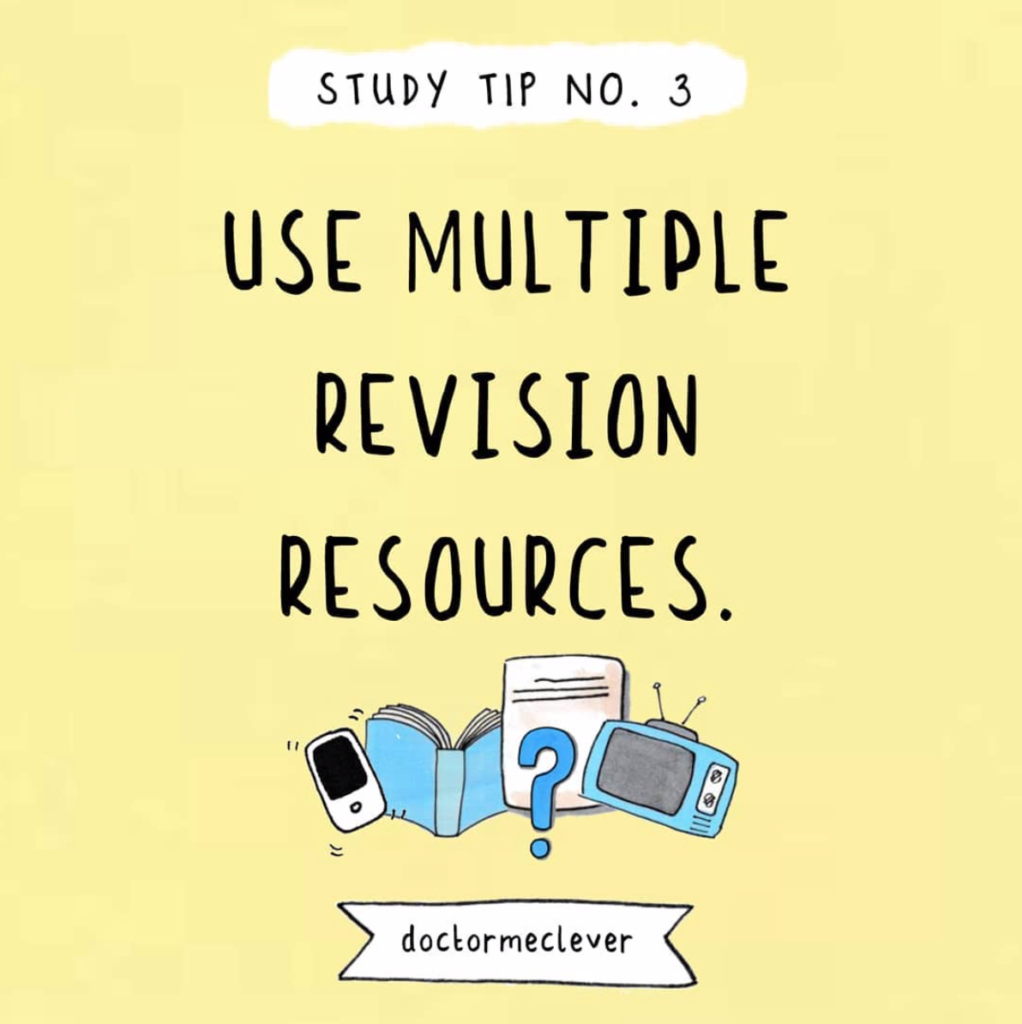
Welcome back to another episode of Your Anxiety Toolkit. Today we are thrilled to introduce Dr. Laura Wetherill who will be talking about school anxiety. Dr Laura Wetherill is a Formal Research Scientist, turned full-time mom, who has a gift for doodling and supporting students with their studies and their mental health. Dr. Laura Wetherill now considers herself an online educator and has so much to share with us about managing school anxiety.
During the interview, we address the below questions:
- What advice to you have for those who afraid of how stressful the year will be?
- How can students manage comparisons (with students who are “smarter” or “more popular” etc.)?
- Any tips for managing time during the school year?
- How can one manage the fear of failing a test or a class?
- How can one manage strong feelings of dread and hate towards school?
Dr. Wetherill gathered information on how students are feeling about going back to school and learned a lot about school anxiety and fears:
When asked, “How are you feeling about going back to school?” the vast majority reported fears based around friends, exams, time pressures, expectations, etc. We included them for your reference.
Friends/relationships: • Nervous about not having friends in some of my classes. • Worried about losing friends. • Worried about making friends. • Unresolved conflict with friends. • Bullying.
Exam Stress: • Many students worried about coping with stress, anxiety and the pressure around upcoming exam time. • One student is worried that she will panic in the exam room. • Students worrying that they’ve failed their exams and must go back to school with “bad” results (worried they’ve let parents, teachers and themselves down).
General stress: • Scared the year will be too stressful. • Excited for subjects but not about the stress.
Expectations/Not feeling smart enough: • Worried about not meeting entry requirements for A levels. • Worried about not being smart enough and finding it hard when everyone is competing and being compared against one another. • Worried about being unable to cope with the step up in difficulty.
Time pressure: • Not having enough time to learn everything. • Not having enough time to finish resources. • Not having enough time to revise. • Feelings of time running out. • Having to miss the first week of school and then worried about catching up with work.
Predicting Failure: • One student had failed her mocks and is worried that she will fail the real exams. • Students worried that they will fail the exams at the end of this new school year.
Feeling unprepared: • Unprepared for exams. • Unprepared to leave school at the end of the year. • Unprepared for the year ahead. • Some are not sure how to prepare for the year ahead. • Revising hard but feel like it’s not enough. Coping with ongoing medical conditions that disrupt school. • Having a medical condition that means they might not be able to attend school or sit the exams that they would like to sit. • One student was doing half days and they’re worried that this year they won’t be able to cope if they have to do full days. • Making the wrong choices: • Worried that they’ve chosen the wrong subjects or will not enjoy them.
Strong feelings: • “I hate school, I don’t want to go back.” • “My friends p*** me off.” • “I’m terrified”.
New beginnings: • Nervous about starting a new college/6th form/school. • Nervous about starting a new school, in a new country.
For more information on Dr. Wetherill, visit:
Instagram:@doctormeclever
Website: doctormeclever.com
Dr. Wetherill and I created a FREE 7-Step resource to help you bust your procrastination habit. Click HERE for the info.

Welcome back to another episode of Your Anxiety Toolkit. Today I was reflecting on what you might need to hear and it dawned on me that you might need a solid dose of compassion. So, today we are talking about finding your compassionate voice. In this podcast, I will lead you through a “Finding your compassionate voice” meditation, created originally by Kristin Neff and Christopher Germer. The script is below, but please note that I did change a few components to match the style of my voice and my ideas for what you needed to hear.
Finding your compassionate voice involves us bringing what we need to hear to our awareness. Examples of finding your compassionate voice might sound like:
“I love you”
“I am here for you”
“You are enough”
“You are loved”
“Everything is going to be ok”
Finding your compassionate voice is an exercise or tool that might be able to offer you a skill to increase self-compassion, self-kindness, and self-respect.
Finding your Compassionate Voice Meditation
Please find a posture in which your body is comfortable and will feel supported for the length of the meditation.
Then let your eyes gently close, partially or fully.
Taking a few slow, easy breaths, releasing any unnecessary tension in your body.
• If you’d like, placing a hand over your heart or another soothing place as a reminder that we’re bringing not only awareness but affectionate awareness to our breathing and to ourselves. You can leave your hand there or let it rest at any time.
• Now beginning to notice your breathing in your body, feeling your body breathe in and feeling your body breathe out. Now releasing the focus on your breathing, allowing the breath to slip into the background of your awareness, begin to offer yourself words or phrases that are meaningful to you. Whisper these words into your own ear.
• Just letting your body breathe you. There is nothing you need to do.
• Perhaps noticing how your body is nourished on the in-breath and relaxes with the out-breath.
• Now noticing the rhythm of your breathing, flowing in and flowing out. (pause) Taking some time to feel the natural rhythm of your breathing.
• Feeling your whole body subtly moving with the breath, like the movement of the sea.
• Your mind will naturally wander like a curious child or a little puppy. When that happens, just gently returning to the rhythm of your breathing. This is mindfulness.
• Allowing your whole body to be gently rocked and caressed – internally caressed - by your breathing.
• If you like, even giving yourself over to your breathing, letting your breathing be all there is. Becoming the breath.
• Just breathing. Being breathing.
• And now, gently releasing your attention to the breath, sitting quietly in your own experience, and allowing yourself to feel whatever you’re feeling and to be just as you are.
• Slowly and gently open your eyes.
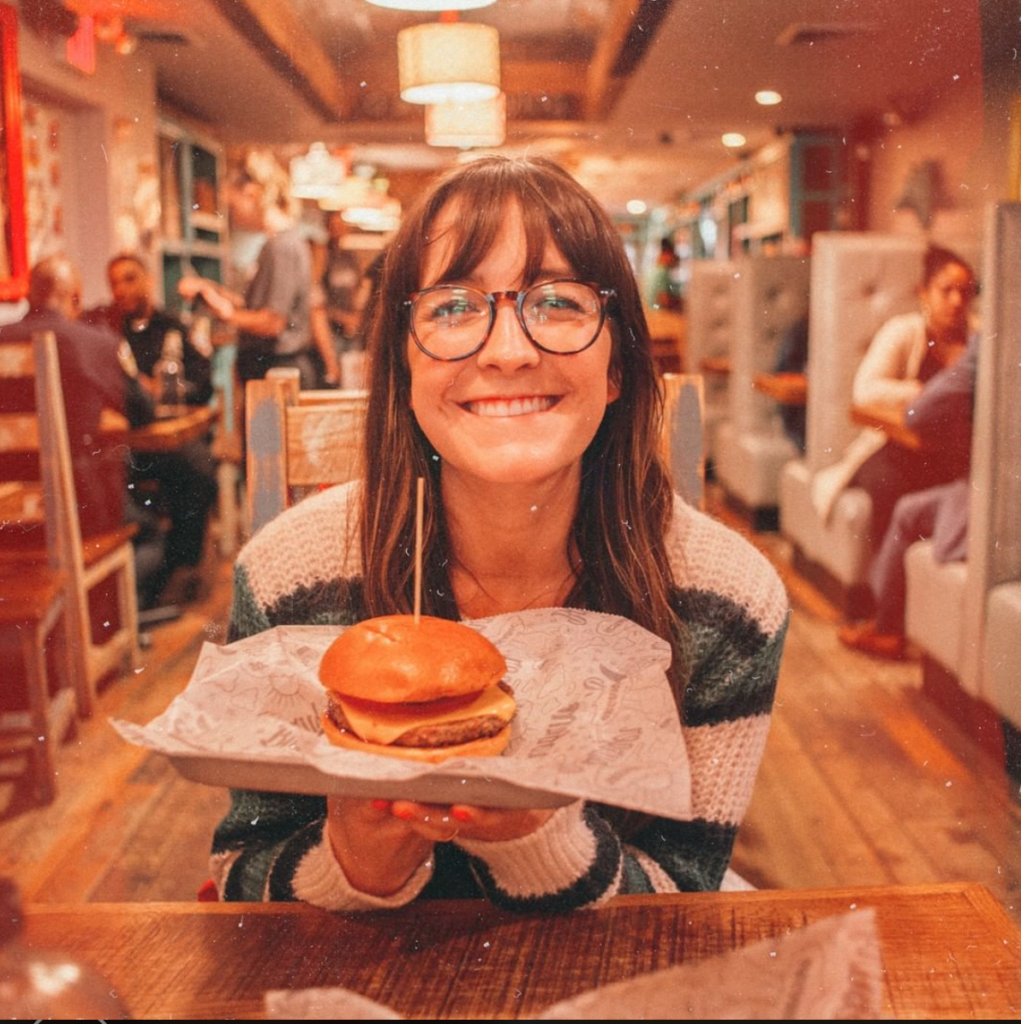
Welcome to another episode of Your Anxiety Toolkit Podcast. We are talking all about our bodies and addressing a very important topic called Health At Every Size in this episode. Today, I am honored to talk to Emily Cooper, a therapist who specializes and is so knowledgeable about health at every size, body positivity, body neutrality, and privilege.
In this episode, we talk about whether there is a “right type of body” or a “wrong type of body” and how society and diet culture impact us and how we see our bodies. Emily Cooper addressed why Health At Every Size is an important concept that improves self-respect and self-love. Health At Every Size (HAES) is an inclusive movement that supports people of all sizes, weights, and body types in addressing health directly by adopting healthy behaviors. Health At Every Size does not focus on weight as the sole indicator of health. Being thinner does not necessarily make a person healthier or happier. A “healthy body” aligns with more than one body type and across a wide range of weights.
During this episode, Emily Cooper also addresses how our perception of our body can impact our everyday lives, specifically related to work environments, social environments, relationships, intimacy and life in general.
In her discussion about Health At Every Size, Emily Cooper also addressed the concept of thin privilege and diet culture and how they impact our relationship with our body and other peoples’ bodies.
The goal of this podcast episode is to introduce you to the idea that you can start to respect your body today, no matter what size or shape. Emily beautifully shared that her hope is to give us permission to not like our bodies but still learn to live our lives, not using weight or size to indicate your worth or ability to do the things you want to do.
For more information on Emily, visit:
Instagram: @heyemilycooper
Blog: http://www.heyemilycooper.com/
Book References:
Body Respect by Linda Bacon and Lucy Aprhamor
Intuitive Eating by Linda Bacon

Welcome to Your Anxiety Toolkit Podcast. Today we are talking about a concept that I get asked about so often. Today we are talking all about how to manage intrusive thoughts. So often I am asked by clients and the CBT School community questions like, “What is an intrusive thought?” and, “How do I manage intrusive thoughts from becoming mental compulsions?” and, “Why is it so hard to manage intrusive thoughts?”
These are all such good questions and I can totally resonate with why it is such a difficult and confusing topic. In today's episode of Your Anxiety Toolkit, I talk about why thought suppression doesn’t work and why distraction is a tool that only works for a short period of time. In this episode, we review the practice of mindfulness in an attempt to manage intrusive thoughts and create an environment in your brain where fear and uncertainty doesn’t run the show.
A wonderful follower sent me the below question:
“I have heard you talk about distraction and thought suppression. Does that mean I need to just focus on my thoughts and stay in my own head? While keeping myself busy with my job and other activities keeps me engaged and gets me out of my own head, does this count as a distraction? Also when you say distraction is bad, is it in the context of OCD or in general? I'm a bit confused, can you please provide some clarity on this.”
This is such a common question that I get asked and I wanted to take this time to address a concept called “Occupation,” which is the practice of allowing thoughts WHILE you go about your day. Occupation is a practice of taking intrusive thoughts with you while you do the things you value in life. This is a very important concept and can help us to define how we manage intrusive thoughts and how we can reduce engaging in compulsive behaviors and mental compulsions.
I hope this episode helps give you additional tools to help manage intrusive thoughts and mental compulsions.
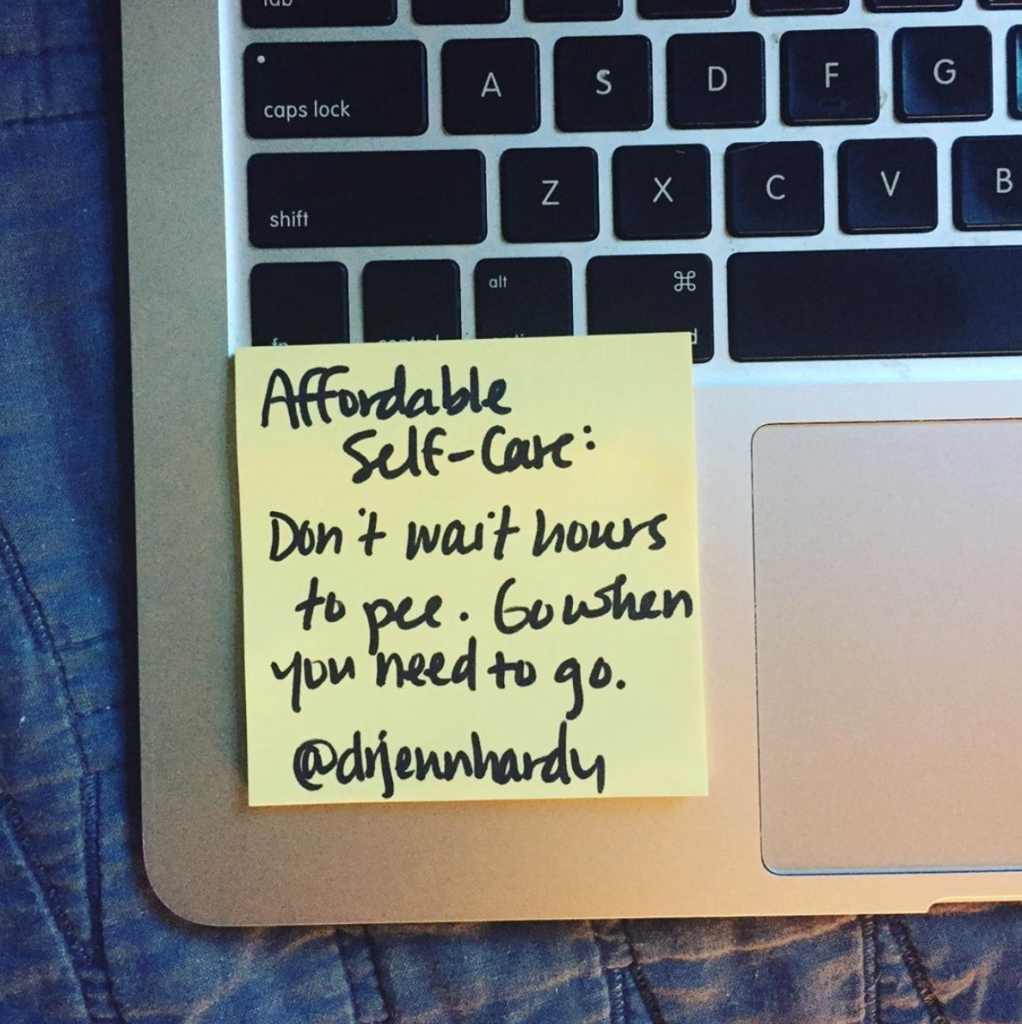
This week’s episode of Your Anxiety Toolkit Podcast will really change the way you look at and relate to Self-care. In this episode, we aren’t talking about luxurious, expensive and unsustainable self-care. We are talking about affordable self-care. And, we are talking about self-care that costs NOTHING! If you struggle with self-care, this is the episode for you. If you struggle to even be aware of when you need self-care, this is the episode for you.
In this episode, we talk with Psychologist Dr. Jenn Hardy about how marketing and media have made self-care into something that should look perfect, cost a lot of money and be luxurious. Dr. Jenn Hardy brings up the wonderful point that a self-care plan that is expensive and indulgent is not sustainable and won’t fit into most people’s daily lives. Dr. Jenn Hardy addresses a concept she coined, affordable self-care, which is taking care of your basic needs and making time each day to give your body and mind what it needs.
Here are a few examples of affordable self-care that you can include into your life in simple and easy ways.
- Going pee when you need to pee
- Journaling
- Slowing down
- Taking a breath between activities
- Honoring what your body needs
- Saying no to things
The thing I love the most about this episode is that we learn just how accessible affordable self-care is. We all have access to affordable self-care, no matter what your income is, where you live and what you do for a living.
For more information on Dr. Jenn Hardy, visit:
Instagram: @drjennhardy
Website: Drjennhardy.com
Before we go, I want to share a virtual conference with you that I will be speaking at (from August 5th-15th): Share Triumph Cancer Conference. I will be speaking at this free, virtual event in which women share how they made decisions about medical treatment and discuss how the emotional effects of diagnosis impact them today. Specifically, I will be talking about managing anxiety related to physical illness and cancer. This event brings together renowned doctors, therapists, nonprofits, fashion brands, comedians, podcasters, survivors and metavivors teaching you how to get through diagnosis, treatment and the aftermath to help keep your mind and spirit intact! Click HERE for more information and to register
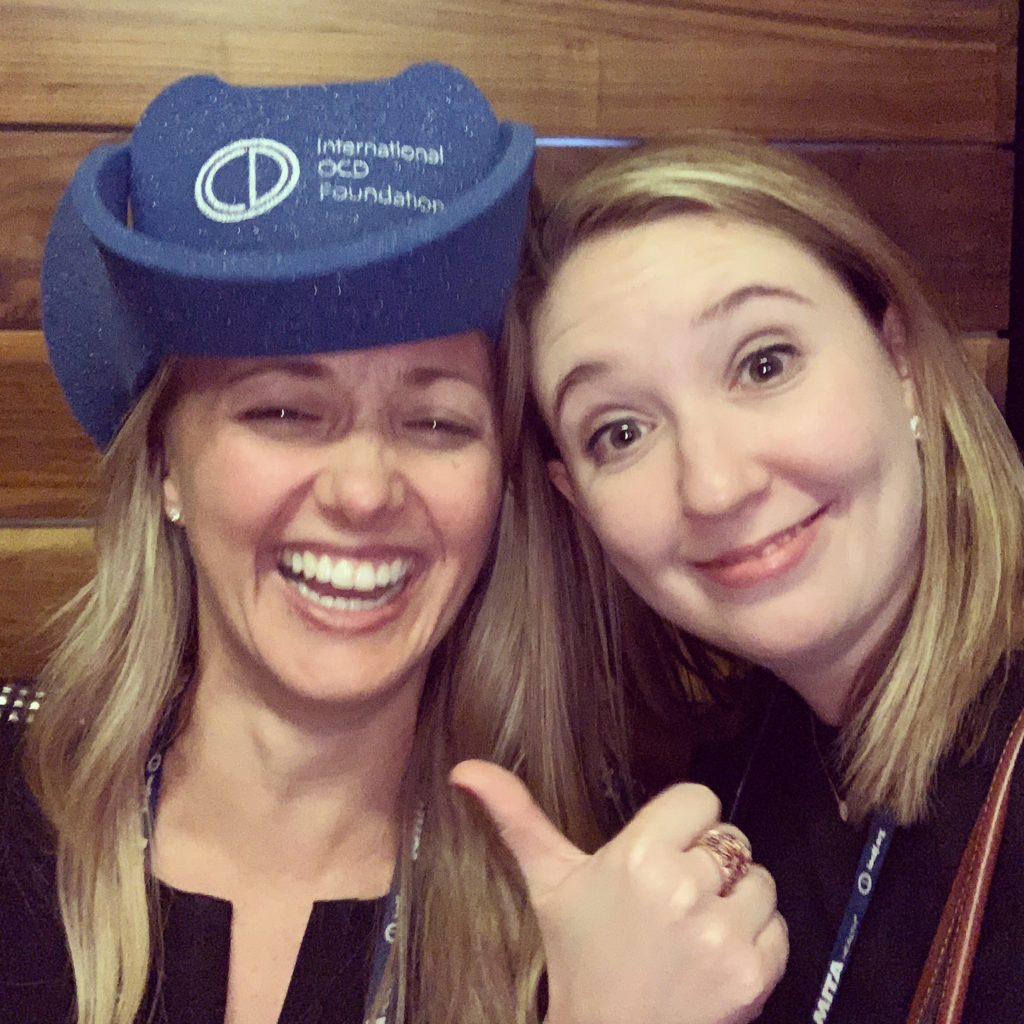
Welcome to another episode of Your Anxiety Toolkit Podcast. Today I am sharing my takeaways from the 2019 International OCD Foundation (IOCDF) Conference. I just got back and it was possibly one of the most wonderful experiences. This year, the conference was in Austin, Texas, and I won't lie…it was HOT. I was super impressed with the people from Texas, as they were so kind, cheerful and helpful.
In today’s episode, I wanted to give you guys a quick peek at what I took away from the 2019 IOCDF conference this year. The 2019 IOCDF Conference is a conference that is held annually to help provide education, support, and advocacy for those who struggle with Obsessive Compulsive Disorder, Health Anxiety, Panic Disorder, Body-Focused Repetitive Behaviors, Tic Disorder or Tourette's Disorder and general anxiety. It is a wonderful opportunity for those who need extra support or want to learn the gold-standard treatment for OCD.
Not only is it an educational weekend, but it is also a weekend filled with hope, love, and unconditional acceptance. Here is what I took away from this year’s 2019 IOCDF Conference.
First of all, you guys are so kind. I cannot tell you how overwhelmed and honored I was to meet so many of you. Thank you to each and every one of you who came and said hi, gave me hugs, thanked me for the work I am so honored to do and for those of you who showered me with the sweetest and most thoughtful gifts. Thank you from the bottom of my heart.
Now, once again this year, I was honored to host the 2019 Compassion Collective support group for Self-Compassion with my dear friend Michelle Massi. Michelle and I met each morning at the very early hour of 7 am to sit with a group of beautiful humans who are invested in being kinder and more compassionate to themselves. It was a beautiful group and, once again, we got to peek inside their minds for an hour each morning and learn just how hard you all are on yourselves. Wowsers, you guys. Humans are FAR too hard on themselves. The main message we tried to share with y’all (We were in Texas hehe) was to drop the idea of getting A+ in life and to shoot for a B-. Be a B- human. Give life a B- effort. Give yourselves a little break here and there.
In addition to running the Compassion Collective group, I also had the honor of running the Women’s OCD Support Group with my dear friend, Beth Brawley. The one big takeaway from these amazing women was to be unapologetically yourself. As women, we need to stop apologizing for ourselves and just own the struggles and wins that we have.
Another thing I heard from attendees over and over in the elevators and hotel halls is the strong urge and pressure to make themselves attend each and every presentation. If anyone has attended and IOCDF Conference, you will know that the schedule is JAM PACKED every single hour of the day. There is no way we can do it all. I figured you guys are hard on yourself in daily life also so my message to you is that you don’t have to do it all.
This one is SUPER important. You are alone! You really are not. Each year, thousands of people meet in a random city in the USA to learn about OCD. I know at home you may not know a single soul with OCD, but please know that people like you are out there and they are wonderful and kind and smart and funny and make my heart so full, just like YOU.
The last takeaway from the 2019 IOCDF Conference is this. YOU ARE SUPPORTED! I was honored to attend the OCD Game Changers event at the conference and there I met a large number of OCD treatment providers and OCD Advocates who are on a mission to help you all and provide good treatment and to advocate for you and to fight for you. You may have had terrible experiences with some therapists, but please know that there are some incredible therapists out there who are such badasses and they are fighting for you.

In today's episode of Your Anxiety Toolkit podcast, we are discussing a compassion practice that will change your life. Today, we are talking about the Buddhist practice, Tonglen Meditation for anxiety. The ancient meditation practice of Tonglen is known as a practice of “taking and sending”.
Tonglen Meditation for anxiety is a practice that is similar to everything we talk about here on Your Anxiety Toolkit. Tonglen Meditation for anxiety reverses our usual logic of avoiding suffering and seeking pleasure. Commonly, people with anxiety want to learn how to eliminate their own suffering and pronouns such as “I”, “Me” and “Mine” is the focus of their attention.
The use of Tonglen is a practice of compassion for all humans, including ourselves, that allows us to visualize taking in the pain of others with every in-breath and sending out whatever will benefit them on the out-breath. In the process of Tonglen Meditation for anxiety, we let go of patterns of selfishness and we bring love to both ourselves and others. We create a practice where we take care of ourselves and others.
Tonglen Meditation for anxiety awakens our compassion and introduces us to a view of reality that is wider and more realistic. Tonglen meditation for anxiety can be a formal meditation practice or can be used at any time for even brief periods of time.
Tonglen Meditation for anxiety also allows us to send compassion to all humans and see that many other humans are just like ourselves. This Tonglen Meditation for anxiety will bring you to see that you are not alone in your suffering. The practice is to bring love and compassion to all living beings, as everyone is suffering in one way or another.
Instead of beating ourselves up, we can use our personal struggles as a way to access common humanity (understanding what people are up against all over the world). As we breathe in the pain and suffering for all of us and breathe out love and compassion for all of us, we create a space where we can feel more deeply and honestly. We can use our personal suffering as the path to compassion for all beings.
Please use this Tonglen Meditation for anxiety to remove the suffering of mankind, while also sending the relief. Breathe out while releasing out comfort and happiness. Radiate love as widely as you can, CBT School community!
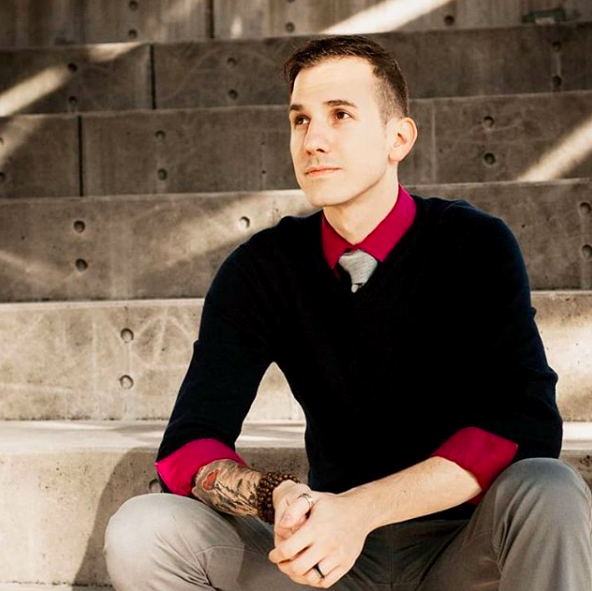
This episode of Your Anxiety Toolkit was not an easy one to record. No one likes to have a conversation about suicide, but we need to. We need to have a conversation about suicide more than ever and we need to keep having these conversations until we break the stigma of suicide.
Recently, one of our dear CBT School members died by suicide and our community was heartbroken. My heart was broken. Even as a therapist, I cannot prepare myself enough for the conversation about suicide.
Thankfully, as we all grieve this sad loss, we are joined today by Joe Dennis to help us work through this difficult topic. Joe Dennis is the Clinical Director of Mindful Counseling in Utah with such a wonderful kind heart. In a flash, Joe agreed to join me for a conversation about suicide where he educated us about suicide and gave us some wonderful tools and resources for those who are struggling with thoughts of suicide. We also discussed tools and resources for those with a loved one who has died by suicide.
Joe talked with us about why we now call it “Death by suicide” and the reasons for this terminology change.
Joe also talked about the difference between passive suicidal ideation and active suicidal ideation and how to differentiate between the two. Joe and I talked about why we struggle to talk about Suicide and how Depression, anxiety, trauma, etc. play into suicidal ideation.
Lastly, Joe talked about what is going through the mind of someone who is contemplating suicide and what tools/strategies/resources they can use when they are faced with this difficult time.
I really hope that this podcast helps you to understand and approach suicide in a way that is less stigmatized, less shamed and less frightening.
Thank you, Joe Dennis, for being on the show.
For more information on Joe, visit:
Instagram: @joedennis.counsels
Website: https://mindfulcounselingutah.com
For more information on suicide awareness and prevention, visit or call:
National Suicide Prevention Hotline: 1800-273-8255
Crisis Text line: 741741
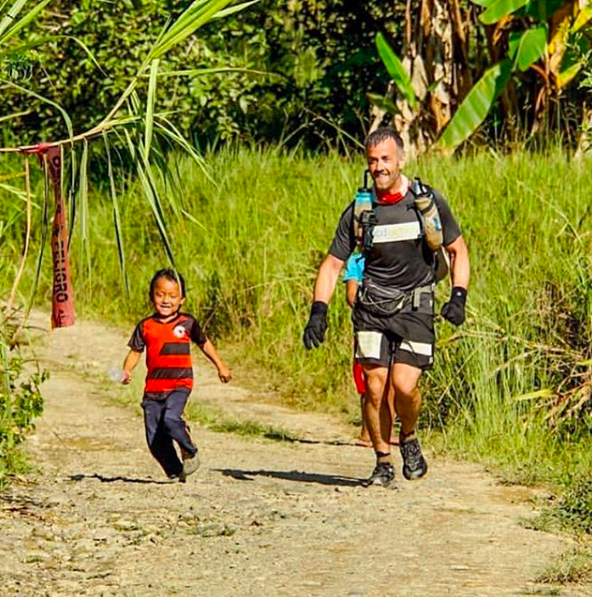
Welcome back to another episode of Your Anxiety Toolkit Podcast. This week we are joined by the amazing Dan Furlong. Dan Furlong is the man behind @maleanxietydepression on Instagram and is an inspiration to many in the mental health field.
In this episode, Dan Furlong talks about his recent experience with running the Jungle Ultra in Peru through the Amazing Jungle. Dan Furlong called it a “self-sufficient race” where he had to run for 5 days through the Amazon Jungle, 3 of which had torrential rain.
Dan Furlong talked about his struggle with anxiety, Obsessive Compulsive Disorder (OCD) and depression. Dan also talked about his struggles with suicidal ideation. Dan said many inspiring things throughout this episode, but here are a few inspirational quotes that really got me thinking.
When discussing his experiences with depression, Dan quoted, “You need to goal set your way out of depression. He talked about how he never lets himself give up and “only when you go through real pain do you find out who you are!”
As Dan ran through the Amazon Jungle and faced many death-defying cliffs and traverses, he repeated to himself, “If you get through this, you can get through anything” and he referred to his OCD recovery in this discussion also. Dan reported only getting 2-3 hours sleep each night and how he chose to run ahead to be allowed to take the “long course” which was running up to 1.5 marathons per day. Just so inspiring, right?!
Dan Furlong spoke extensively about his mindset during the run (and his OCD recovery) and how he has learned to “take the path of least resistance”. Dan stated that “your brain will always talk you out of doing hard things” and because of this, he learned to “take the harder route”.
To donate and help those affected by OCD, click HERE.
To learn more about Dan, visit:
Instagram: @Maleanxietydepression
Website: Mad.com
To purchase Can't Hurt Me: Master Your Mind and Defy the Odds by David Goggins, click HERE

In today’s episode of Your Anxiety Toolkit Podcast, we are talking about finding a middle path in our recovery. This is a very important topic to me, as it is what has helped me immensely in my own anxiety management.
Finding a Middle path (or middle way) is about us seeing beyond our dualistic or black-and-white ways of thinking, behaving and being.
Finding a middle path (or way) describes our journey of seeing the middle ground between attachment (where we cling and grasp onto things being a certain way) and aversion (where we run away from things that are not the way we want them to be).
Finding a Middle Path is about stepping away from “good” and “bad” and seeing that there is no good and bad, and there is only neutral.
In this episode, we talk about embracing the dialectics of change and stillness at the same time. We addressed how finding a middle path is being independent whilst also being a part of a larger community. It is where we embrace tension, paradox and change and discover a world that is workable in the middle, not just at the beginning or end.
One of the reasons I love this concept so much is that instead of always seeking resolution and completion and perfection, we let ourselves open and relax in the middle stages of our process. We live in the reality of the present. The more we delve into the middle way, the more deeply we come to rest between the play of opposites.
One of the hardest parts of this Buddhist practices is learning to trust in life itself. In this episode, we touch on this as an important part of finding a middle path.
For more information on Finding a Middle Path, read this wonderful article by Jack Kornfield: https://jackkornfield.com/finding-the-middle-way/